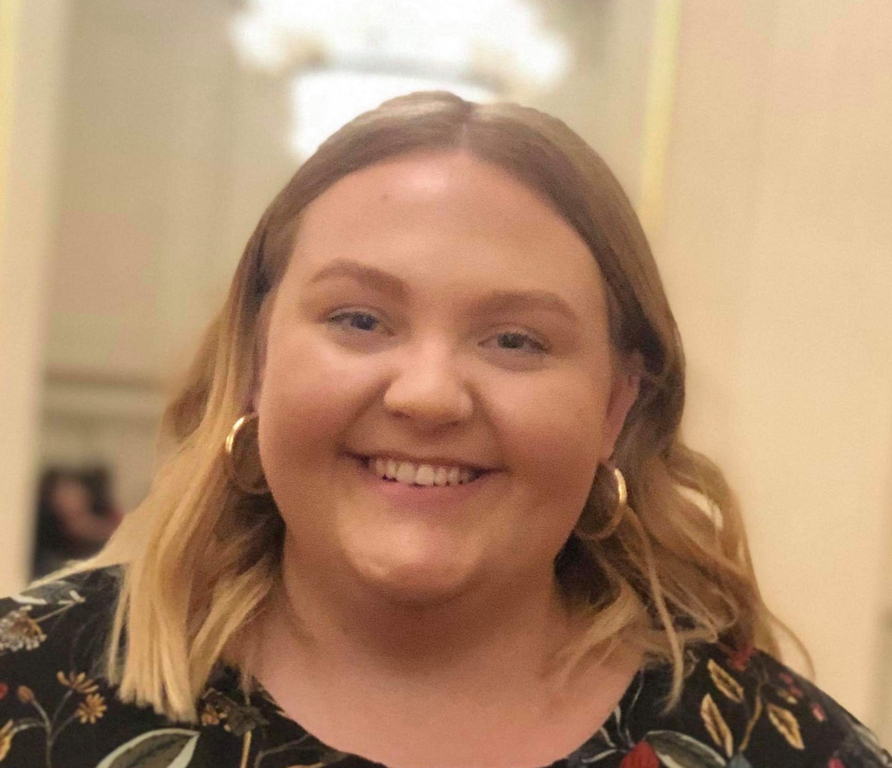Hannah Butterworth is studying MSc Clinical Mental Health Studies at the Department of Psychiatry at UCL. She spoke to us about her experience of volunteering with Beat - the UK's eating disorder charity, and how it has contributed to her personal development. She has now been offered a job with the Charity!

Tell us about your volunteering
I started volunteering for Beat - the UK’s eating disorder charity - in February 2020. Beat’s mission is to end the pain and suffering caused by eating disorders. I started off as a Digital Volunteer, which involved supporting people affected by eating disorders (e.g. people experiencing an eating disorder, friends, family members, carers) over an online web chat. I supported people in a range of ways including encouraging them to open up to someone about their eating disorder, signposting them to services that may be able to help them, or just being there to listen. I started off by volunteering for 2 hours on a Friday evening, but I've now just started a paid Helpline Advisor role that I've been offered by Beat which will involve supporting people over the phone and via online web chats, responding to emails from service users, facilitating online support groups, and supervising volunteers.
How did you find out about the role?
I found the role through UCL’s Volunteering Directory.
Why did you want to become a volunteer?
I want to qualify as a Clinical Psychologist in the future, so volunteering for a mental health charity helped me gain experience for this, and complemented my MSc course at UCL really well. I volunteered for Age Scotland during my undergraduate study at the University of Edinburgh and I found this really rewarding. As soon as I moved to London, picking up a similar voluntary role was one of my priorities.
What difference do you feel you’ve made by volunteering?
When people come to Beat, it's often the first time they've spoken to someone about their eating disorder. When this happens, it's our job to support them and listen, but also to encourage them to seek further support from their doctor so that they can get the best treatment and obtain the best possible mental health outcomes. It's really positive for us when service users say that they'll now consider going to their doctor because it means that we’ve helped them move a step closer to receiving help or treatment.
The majority of the time I've spent volunteering for Beat has been during lockdown which has made it a really different experience. Demand for Beat services rose by 72% and there were a lot of people coming to Beat who had relapsed due to the mental health effects of lockdown.
I feel like I've really been able to make a difference by being one of the volunteers supporting people during the pandemic.
What impact has volunteering had on you?
My voluntary role has definitely complemented my MSc course well and allowed me to gain more in-depth knowledge of eating disorders which will be really useful in my future career. However, I think volunteering has had the biggest impact on my own mental health and wellbeing as it has given me a stronger sense of purpose and I think supporting others with their mental health, especially during difficult times like the pandemic, is one of the most valuable and rewarding things we can do.
What’s the best thing about volunteering?
I think the most rewarding thing about my voluntary role is when a service user leaves a web chat feeling more positive than they did when they entered it. Just knowing that you’ve made them feel heard or less alone is incredibly rewarding.
And the most challenging? How did you overcome the challenges?
Sometimes people who come to the online chats can be in a really bad place and feel like giving up. It’s our job to make sure they feel heard and supported, and to also make sure they're safe. Although this can be difficult, it's made much easier by the amazing support we receive from the Beat team as volunteers. We always have a lovely supervisor at the end of the phone if we need help, and they always call us after our shift so that we can talk through any difficult emotions that we’re having and to make sure that we have something nice to do after our shift.
Tell us about something memorable that’s happened to you whilst volunteering
I can’t think of a specific memorable moment whilst volunteering, but my favourite moments are when a service user says that they believe they can get better.
Would you recommend volunteering? If so, why?
Definitely. It’s one of the best things you can do. It can have such a positive impact on so many parts of your life - your studies, career, personal development, mental health, etc.
Are you still volunteering? If so, how has COVID-19 changed what you do?
Yes - as my volunteering was remote anyway, the way I worked pretty much stayed the same during the pandemic. As I mentioned earlier, demand for Beat services has increased by 72% since the COVID-19 outbreak so there were a lot more people to speak to every shift, which I actually really enjoyed and made my role feel even more worthwhile!
If you want to find an opportunity that relates to your academic interests or your passions like Hannah, check out all the available volunteering roles on our directory!